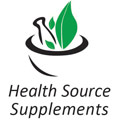Probiotics for Mental Health

Probiome is a blend of cutting-edge psychobiotic strains, clinically proven to support mood, stress, and mental wellbeing. These mood-promoting probiotics act on the microbiome gut-brain axis, improving physical and psychological symptoms of stress, anxiety, and mild depression. Five human clinical studies have proven that when these strains are paired together, they have positive effects on neurotransmitters, maintain healthy cortisol levels, preserve neuroplasticity and neurogenesis, reduce intestinal inflammation and visceral pain due to stress, and prevent neuroinflammation in the limbic system which can be responsible for stress response.
Probiome includes the Cerebiome® psychobiotics, the most documented probiotics to support mood, stress, and mental wellbeing, The Institut Rosell is a pioneer in probiotic manufacturing, which produces the probiotic strains found in Cerebiome® (Bifidobacterium longum subsp. Longum Rosell®-175 and Lactobacillus helveticus Rosell®-52). Five human clinical studies have proven these strains help enhance mood due to their actions on the microbiome-gut-brain axis through supporting a healthy response to everyday stress.

Probiome 60 capsules
Stress, Intestinal Flora, Mental Wellbeing
- ✔ Healthy mood balance
- ✔ Alleviate anxious feelings
- ✔ Microbiome-gut-brain axis
- ✔ Improve symptoms of everyday stress
- ✔ Reduce stress induced gut symptoms

MENTAL WELLNESS 1,2,3,4,5,6,8,9,10,11,15,16
Stress & Anxiety & Low Mood (mild depression)
-
Reduce feelings of anxiety
-
Improve depression symptoms (BDI and BDNF scores)
-
Reduce symptoms and improve response to everyday stress
-
Positive effect on mood, anxiety, feelings of pleasure, and sleep
Neurotransmitters & Hormones
-
Decrease cortisol (stress hormone)
-
Regulates neurotransmitter (serotonin, tryptophan)
-
Normalize dopamine (pleasure) and norepinephrine (stress)
Brain & Nervous System
-
Support healthy vagus nerve
-
Prevent neuroinflammation of the limbic system (responsible for stress response)
-
Protect normal neuroplasticity (nervous systems adaptive capacity) and neurogenesis
IMMUNITY 12,13,14
-
Fight infections (IgM & IgG antibodies)
-
Decrease pro-inflammatory cytokines
-
Immunomodulatory effects (balance Th1 & TH2)
GUT HEALTH 2,6,7,8,9
-
Reduce stress-related GI discomfort:
-
IBS, abdominal pain, nausea, vomiting, diarrhea, constipation
-
Promote normal gut microflora and strong intestinal barrier
-
Reduce intestinal inflammation due to stress

Start feeling better within one month
-
Decreases the cycle of everyday stress and general stress by 44% [as measured in Messaoudi 2010]
-
Supports healthy cortisol (stress hormone) levels
-
Modulates the synthesis of neurotransmitters and their precursors (serotonin, tryptophan)
-
Promotes a healthy brain
Help calm an upset gut in stressful times by:
-
Promoting intestinal comfort by 25.9% and decreasing nausea and vomiting by 8% [Diop 2008]
-
Promoting normal gut microflora
-
Protecting the intestinal barrier
References
- Messaoudi, M. L., R., et al. (2010). “Assessment of psychotropic-like properties of a probiotic formulation (Lactobacillus helveticus R0052 and Bifidobacterium longum R0175) in rats and human subjects.” Br J Nutr 105(5): 755-764.
- Diop et al. (2008). “Probiotic food supplement reduces stress-induced gastrointestinal symptoms in volunteers: a double-blind, placebo-controlled, randomized trial.” Nutrition Research 28(1): 1-5.
- Romijn, A. R., et al. (2017). “A double-blind, randomized, placebo-controlled trial of Lactobacillus helveticus and Bifidobacterium longum for the symptoms of depression.” Australian & New Zealand Journal of Psychiatry: 0004867416686694.
- Kazemi, A., et al. (2018). “Effect of probiotic and prebiotic vs placebo on psychological outcomes in patients with major depressive disorder: A randomized clinical trial.” Clinical Nutrition
- Wallace, C. J. K., & Milev, R. V. (2021). The Efficacy, Safety, and Tolerability of Probiotics on Depression: Clinical Results From an Open-Label Pilot Study. Frontiers in Psychiatry, 12.
- Mohammadi, G., et al. (2018). “The Effects of Probiotic Formulation Pre-treatment (Lactobacillus helveticus R0052 and Bifidobacterium longum R0175) on a Lipopolysaccharide Rat Model.” Journal of the American College of Nutrition: 1-9.
- Arseneault-Breard, J., et al. (2012). “Combination of Lactobacillus helveticus R0052 and Bifidobacterium longum R0175 reduces post-myocardial infarction depression symptoms and restores intestinal permeability in a rat model.” Br J Nutr 107(12): 1793-1799
- Malick, M., et al. (2015). “Vagotomy prevents the effect of probiotics on caspase activity in a model of postmyocardial infarction depression.” Neurogastroenterol Motil 27(5): 663-671.
- Ait-Belgnaoui, A., et al. (2018). “Bifidobacterium longum and Lactobacillus helveticus Synergistically Suppress Stress-related Visceral Hypersensitivity Through Hypothalamic-Pituitary-Adrenal Axis Modulation.” Journal of Neurogastroenterology and Motility 24(1): 138-146.
- Tillmann, S., et al. (2018). “Probiotics Affect One‐Carbon Metabolites and Catecholamines in a Genetic Rat Model of Depression.” Molecular nutrition & food research.
- Heidarzadeh-Rad, Gokmen-Ozel, et al. (2020). Effects of Psychobiotic Supplement on Serum Brain-derived Neurotrphic Factor Levels in Depressive Patients: A Post Hoc Analysis of a Randomized Clinical Trial. Neurogastroenterol Motil 26(4): 486-495
- Easo, JG., et al (2002). Immunostimulatory actions of lactobacilli: Induction of antibody production and spleen cell proliferation by Lactobacillus delbruecki subsp. bulgaricus and Lactobacillus acidophilus. Food and Agricultural Immunology. 14:73-83.
- Wallace. TD., et al (2002). Interactions of lactic acid bacteria with human intestinal epithelial cells: Effects on cytokine production. J of Food Protection. 66(3):446-472.
- Cazzola, M., et al (2010). Immunomodulatory impact of a symbiotic TH1 and Th2 models of infection. Ther Adv Respir Dir. 4(5):259-270.
- Messaoudi et al. (2011). Assessment of psychotropic-like properties of a probiotic formulation (Lactobacillus helveticus R0052 and Bifidobacterium longum R0175) in rats and human subjects. British Journal of Nutrition, 105(5), 755-764.
- Ait-Belgnaoui, A., et al. (2014). “Probiotic gut effect prevents the chronic psychological stress induced brain activity abnormality in mice.” Neurogastroenterol Motil 26(4): 510-520.

